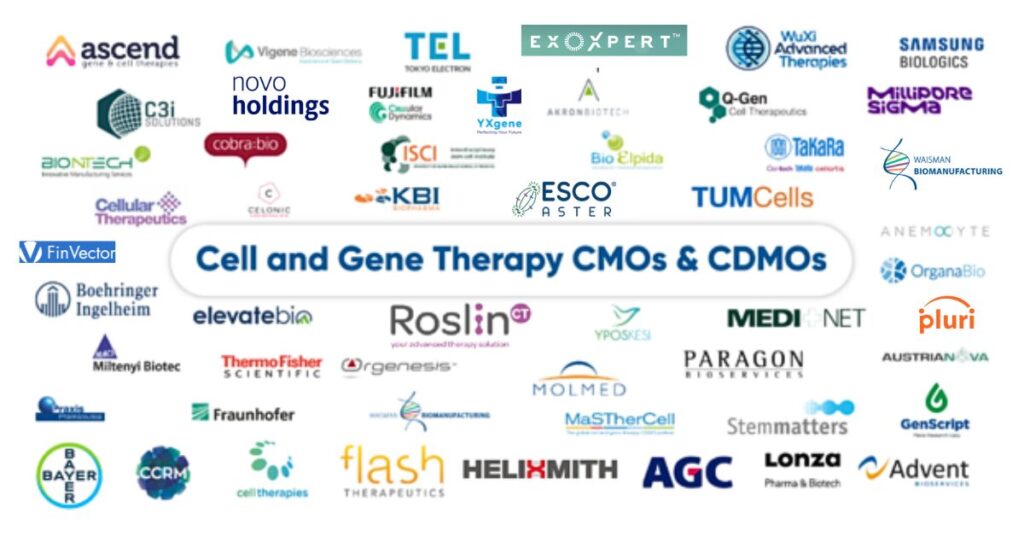|
|
Cell therapy manufacturing is becoming of growing importance as more and more cell therapeutics make their way through clinical trials. One of the major issues with moving cell therapy products from “bench to bedside” has been manufacturing bottlenecks. The heterogeneous nature of cell therapy products has introduced manufacturing complexity and regulatory concerns, as well as scale-up complexities that are not present within traditional pharmaceutical manufacturing.
Cell Therapy Manufacturing CDMOs
While these realities may sound like negative factors for the industry, the reality is quite the opposite. For cell therapy CDMOs, these factors create pressures for cell therapy companies to seek third-party partners who possess technical, manufacturing, and regulatory expertise in cell therapy development and manufacturing.
Furthermore, much of cell therapy manufacturing now involves patient-specific cell therapies, where cells for an individual patient are processed one batch at a time. Ten years ago, it was a common belief that making separate batches of a therapy for each patient would never fit the “big pharma” business model. Logically, allogeneic therapies would better align with the pharmaceutical model, because universal cell populations could be prepared in advance to later be prescribed to patients in need, much like drug compounds have been administered for decades.
Nonetheless, clinical data in support of patient-specific therapy has been compelling, so the pressure is on cell therapy CDMOs to make these therapies on a larger scale. It is now understood that both autologous and allogeneic cell therapies will contribute important therapeutic solutions.
Today, there are opportunities for developing and manufacturing autologous and allogeneic cell therapy products, which vary greatly in their manufacturing requirements, routes for patient administration, and cost structures.
Increases in cell therapy clinical trials have been a major factor driving progress with cell therapy manufacturing processes. As stated by Dr. Jon Rowley, Founder and CTO of RoosterBio, “To date there has been substantial cell therapy product innovation. It is now time for the industry to focus on cell therapy manufacturing process innovation.”
Cell and Gene Therapy Manufacturing
For cell and gene therapy manufacturing, benefits of partnering with a CDMO include scalability, speed to market, access to technical expertise without overhead costs, and cost efficiencies. As the demand for these services have grown on a global basis, dozens of market competitors have moved into cell therapy manufacturing services.
Important market leaders for cell therapy manufacturing now include:
- Roslin CT (acquired Lykan Bioscience)
- Minaris Regenerative Medicine
- WuXi Advanced Therapies
- Nikon CeLL innovation Co., Ltd. (“NCLi”)
- Yposkesi
- And over 130+ other companies
In the gene therapy manufacturing space, companies are also rapidly populating. For example, two biotech company (Vectalys and FlashCell) merged to form Flash Therapeutics, a developer of non-integrating lentiviral delivered RNA treatments. In addition to developing its own therapies, FlashCell offers development and manufacturing support to companies worldwide pursuing lentiviral delivered therapies.
Role of CROs vs CDMOs
While both Contract Research Organizations (CROs) and Contract Development and Manufacturing Organizations (CDMOs) provide services to the cell and gene therapy industries, they serve different functions within the product development and manufacturing process. In particular, CROs primarily focus on providing research-related services, including preclinical research, clinical trial management, regulatory affairs, and data analysis. Their main objective is to support the research and development activities of their clients. As such, CROs are heavily involved in the early stages of drug development, where the focus is on understanding the pharmacology, safety, and efficacy of investigational therapies.
For example, KYinno.com is a preclinical contract research organization specializing in customized services within the fields of in vitro and in vivo pharmacology, cell line engineering, therapeutic target identification, and antibody discovery. With a unique portfolio boasting over 3000 engineered cell lines, as well as bispecific and tri-specific antibody discovery mouse models, Kyinno.com support clients in the pharmaceutical and biotechnology sectors. Through a commitment to innovation and quality, Kyinno.com provides tailored solutions to meet the diverse needs of its clients. Leveraging advanced technologies and expertise, the company delivers reliable and reproducible results, empowering researchers to advance their projects with confidence.
With a collaborative approach and a focus on customer satisfaction, Kyinno.com endeavors to be a trusted partner in driving success in preclinical research. Whether clients are seeking to develop new product candidates, unravel disease mechanisms, or optimize therapeutic strategies, Kyinno.com offers comprehensive support to accelerate progress and achieve objectives.
In contrast, CDMOs specialize in providing services related to the development and manufacturing of cell and gene therapy products. Thus, their main objective is to support the manufacturing and commercialization activities of pharmaceutical and biotech companies. CDMOs typically offer a broad range of services encompassing drug development, process development, analytical testing, and manufacturing. This includes developing scalable manufacturing processes, producing clinical trial materials, and manufacturing commercial-scale products. CDMOs are largely focused on the later stages of drug development, where the emphasis shifts from research to manufacturing. Their expertise lies in optimizing manufacturing processes, ensuring product quality, and meeting regulatory requirements for commercialization.





















Tell Us What You Think!